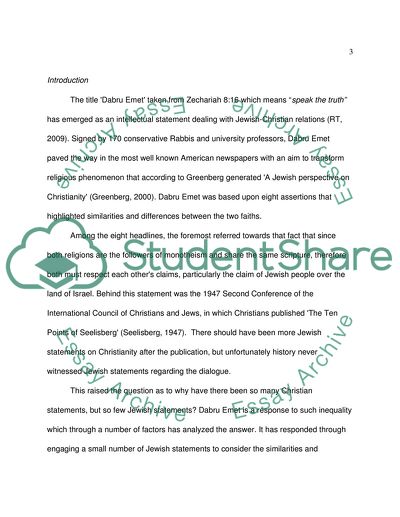Cite this document
(Issues Relating to Dabru Emet Coursework Example | Topics and Well Written Essays - 3500 words, n.d.)
Issues Relating to Dabru Emet Coursework Example | Topics and Well Written Essays - 3500 words. Retrieved from https://studentshare.org/religion-and-theology/1722500-an-examination-of-the-issues-relating-to-dabru-emet
Issues Relating to Dabru Emet Coursework Example | Topics and Well Written Essays - 3500 words. Retrieved from https://studentshare.org/religion-and-theology/1722500-an-examination-of-the-issues-relating-to-dabru-emet
(Issues Relating to Dabru Emet Coursework Example | Topics and Well Written Essays - 3500 Words)
Issues Relating to Dabru Emet Coursework Example | Topics and Well Written Essays - 3500 Words. https://studentshare.org/religion-and-theology/1722500-an-examination-of-the-issues-relating-to-dabru-emet.
Issues Relating to Dabru Emet Coursework Example | Topics and Well Written Essays - 3500 Words. https://studentshare.org/religion-and-theology/1722500-an-examination-of-the-issues-relating-to-dabru-emet.
“Issues Relating to Dabru Emet Coursework Example | Topics and Well Written Essays - 3500 Words”, n.d. https://studentshare.org/religion-and-theology/1722500-an-examination-of-the-issues-relating-to-dabru-emet.


